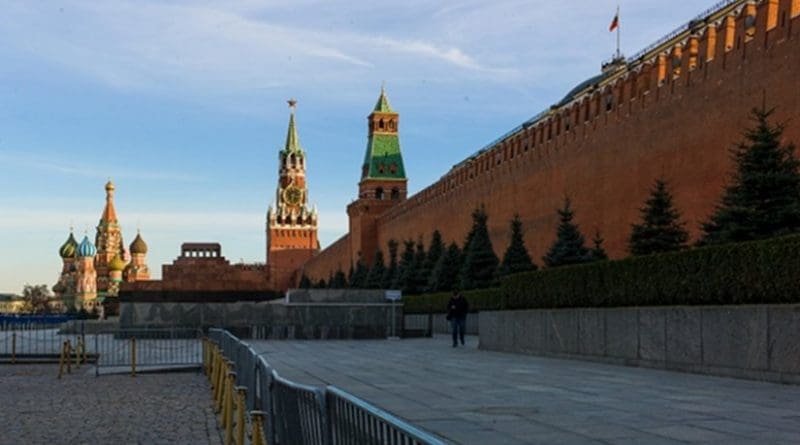Russia Slaps Sanctions On Romania And Moldova
By Marian Chiriac
Moscow took retaliatory measures against Romania and Moldova after Chisinau declared Russian Deputy Prime Minister Dmitry Rogozin persona non grata and Bucharest refused to allow him to use its airspace.
The Russian Federal Service for Veterinary Surveillance, Rosselkhoznasor on Thursday banned imports of some 20 tons of plums from Moldova, while also introducing a temporary ban on pork and pork meat imports from Romania.
Moscow’s decision came a day after the Moldovan government declared Russian Deputy Prime Minister Dmitry Rogozin to be persona non grata and barred him from entering Moldova.
Rogozin is also Russia’s special representative to Transnistria, a breakaway region of Moldova that has remained close to Moscow since the fall of the Soviet Union.
Russia maintains a 1,200-strong military force in Trannistria although Moldova has repeatedly called for it to be replaced with international peacekeepers.
The government in Chisinau explained the decision by citing Rogozin’s controversial public statements about Moldova, its people and its leadership on July 28.
Russia’s Foreign Ministry summoned Moldova’s ambassador to Moscow on Wednesday to protest about the ban.
“Such precarious actions are irresponsible steps aimed at a deliberate undermining of bilateral Russian-Moldovan relations and may have a serious destabilising effect on the general situation in the region and in Europe as a whole,” the Russian ministry said in a press release.
Analysts believe more sanctions against Moldova are likely to follow.
The Romanian authorities on July 30 also banned a commercial flight that Rogozin was on from entering their country’s airspace.
Romania said that its decision to ban Rogozin from using the country’s airspace was based on EU sanctions against the Russian deputy premier.
Romanian Foreign Minister Teodor Melescanu said on Tuesday that Rogozin wanted to prove that EU sanctions against blacklisted Russian officials don’t work, which he described as “a big error”.
After Romania barred Rogozin’s overflight, the Russian deputy premier threatened Bucharest with retaliatory measures.
Rogozin has been targeted by US and European Union sanctions over his public support for Russia’s annexation of Ukraine’s Crimea. Under these sanctions, he is banned from entering EU countries.
Moscow also decided to ban fruit, cattle, beef and wine imports from Moldova in 2014, soon after the former Soviet country signed a deal making closer ties with the European Union.
Moldova was part of Romania before the Soviet Union annexed it during World War II. Before World War I, it was part of Tsarist Russia.
A landlocked country lying between Romania and Ukraine, most people in Moldova speak Romanian, although the country’s constitution calls the language Moldovan. Russian is also widely spoken.
Russia and neighbouring EU member Romania are vying for influence in Moldova, where reforms are needed to end corruption and depoliticise key institutions like the judiciary and police.
Moldovan politics is currently divided between a pro-Western government, which has run the country since 2009, and pro-Moscow President Igor Dodon, who wants Moldova back in Russia’s orbit.

